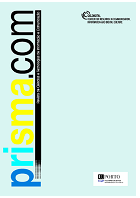Internet Search mechanisms and distortions of the semantic space: The Scientific challenges facing the “googles”
Resumo
Ever since the launch of Altavista, internet search engines have become a multi-billion dollar industry, with fierce competition between Google and the three major competitors. One of the challenges involved is to rank search results in a way that places the most meaningful results at the top. In order to do this, the algorithms involved must try to grasp the actual meaning, the semantics, embedded in a search query. In this paper we discuss a problem we call "distortions of semantic space". Distortions of semantic space occur regularly in people's texts, writing styles, labeling of images, etc. We present a number of examples of distortions of semantic space, and analyze the problem. We also comment on new computational architectures that have tried to handle this problem, albeit the state of the art still remains far from the needed.Downloads
Publicado
2007-04-05
Como Citar
Linhares, A., & Afonso, C. W. (2007). Internet Search mechanisms and distortions of the semantic space: The Scientific challenges facing the “googles”. PRISMA.COM, (5), 67–91. Obtido de https://ojstest.xyz/ojsletrasX/index.php/prismacom/article/view/2096
Edição
Secção
Artigos do CONTECSI
Licença
A PRISMA.COM fornece acesso livre, imediato e gratuito ao conteúdo das suas publicações no sentido de apoiar o compartilhamento global de conhecimento, sendo as suas edições publicadas sob a licença Creative Commons Attribution (CC BY 4.0).
Autores que publicam nesta revista concordam com os seguintes termos:
- Autores conservam os direitos de autor e concedem à revista o direito de primeira publicação, com o trabalho simultaneamente licenciado sob a Licença Creative Commons Attribution que permite a partilha do trabalho com reconhecimento da autoria e publicação inicial nesta revista.
- Autores têm autorização para assumir contratos adicionais separadamente, para distribuição não-exclusiva da versão do trabalho publicada nesta revista (ex.: publicar em repositório institucional ou como capítulo de livro), com reconhecimento de autoria e publicação inicial nesta revista.
- Autores têm permissão e são estimulados a publicar e distribuir o seu trabalho online (ex.: em repositórios institucionais ou na sua página pessoal) a qualquer ponto antes ou durante o processo editorial, já que isso pode gerar alterações produtivas, bem como aumentar o impacto e a citação do trabalho publicado (Veja O Efeito do Acesso Livre).






